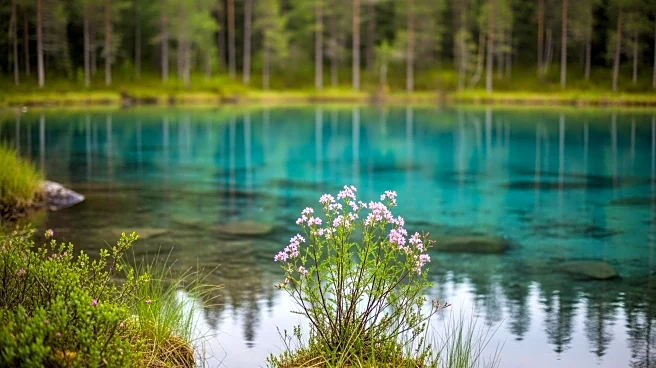What's Happening?
A study published in Nature Communications reveals that microbial life emerged in the Lake Lappajärvi crater in Finland just four million years after an asteroid impact. Led by researchers Jacob Gustafsson and Henrik Drake from Linnaeus University, the study analyzed
rock cores beneath the lake, uncovering traces of microbial activity. The impact, which occurred 78 million years ago, initially melted stone at extreme temperatures. However, the crater's unique geological makeup allowed it to cool slowly, creating a sustained environment for thermophilic microbes. The findings suggest that microbial life can rapidly recolonize devastated terrains, offering insights into potential life on other planets with similar impact histories.
Why It's Important?
The rapid emergence of life in the Finnish crater highlights the resilience of microbial ecosystems and their ability to thrive in post-impact environments. This discovery has broader implications for astrobiology, suggesting that similar processes could have occurred on Mars, where impact craters and hydrothermal activity are prevalent. The study underscores the idea that life is not only a survivor of catastrophic events but often a direct consequence of them. Understanding these processes can inform the search for extraterrestrial life and enhance our knowledge of life's adaptability in extreme conditions.















